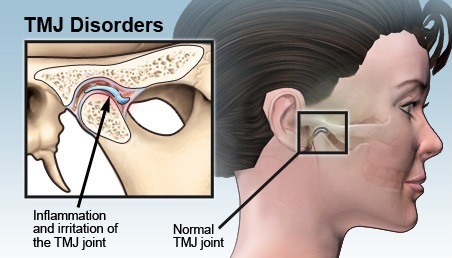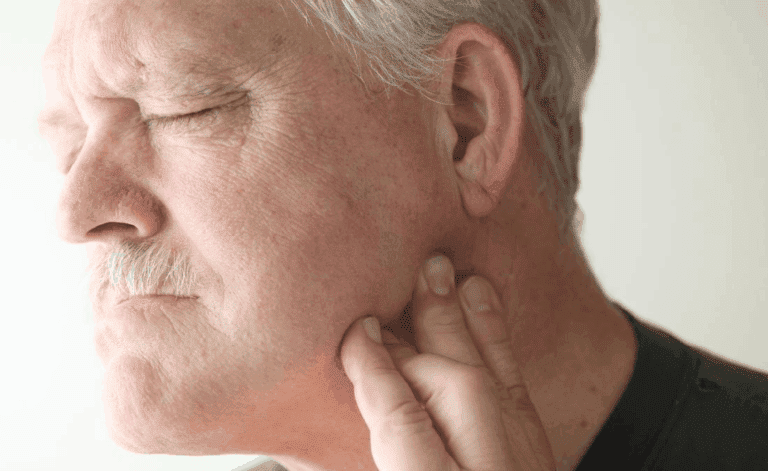What is dental occlusion?
Dental occlusion is another name for the way your teeth meet when your jaws bite together.
What is TMJ?
The word TMJ is an abbreviation of ‘temporomandibular joint’, which is when the joint connects your lower jaw and your skull. The function of this joint is the jaw movement which helps you in the opening and closing your mouth.
What kind of problems might occur?
If your teeth don’t fit properly, you may find this problem.
Not only in your teeth but also the gums, the temporomandibular joint or the muscles that move your jaw these problems are called ‘occlusal’ problems.
- Teeth: Teeth that are out of a line, severely worn, breaking constantly and fractured fillings or crowns all can be the signs of an occlusal problem. You feel tenderness on a bite on may experience aches constantly.
- Gums: An incorrect bite can worsen receding gums.
- TMJ: Pain in jaw joints is a common sign. Along with this, you may notice a clicking sound while you open or close your mouth. You may also experience ringing or buzzing sound in your ears and difficulty in opening or closing your mouth
- Muscles: If your jaw is in the wrong position, the muscles that move the jaw have to work a lot harder and can get tired. This leads to muscle spasm. The main symptoms are continual headaches or migraine, especially first thing in the morning – pain behind your eyes; sinus pain and pins in your neck and shoulders. Sometimes even back muscles are involved.
How can I tell if have a problem?
Many people have imperfect occlusion and missing teeth. Yet never find symptoms because they adjust to their problems. Occasionally, due to increased stress and tension, the symptoms may appear. Your teeth and gums may be affected after the symptoms appear. Often this may be temporary.
You may also find the below problems:
- Flattened, worn teeth
- Broken teeth, filling, and crowns
- Loose teeth
- Continual sensitivity of your teeth to temperature change
- A toothache with no apparent cause.
If you are experiencing any of these problems, consult your dentist.
You may find that you clench or grind your teeth, although most people who do aware of it. Sometimes it can be due to anxiety, but generally, most people clench their teeth when they are lifting heavy items.
If you wake up in the morning with a stiff jaw or tenderness when you bite together, the reason could be due to grinding teeth while sleeping. Most people who grind their teeth while sleeping may not know they are doing it.
If you suffer from severe headaches, neck and shoulder pain, it may link this with possible jaw problems. Or if you have pain on the side of your face around ears or jaw joints these are possible symptoms of TMJ problems.
If you are missing some teeth at the back of your mouth(molar), this may cause an unbalanced bite and hence pressure can be increased on some teeth. Together, all these symptoms are called ‘ TMJ syndrome’. Your dentist will check to see how you bite together.

How are occlusal problems treated?
If you have continuous pain and discomfort consult your dentist. He or she may be able to help you or they may refer you to a specialist. (who specially deals with occlusal problems). Depending on the problems you are having, it can be possible to spot the signs of an occlusal problem. Various muscles may feel sore and discomfort when tested.
The broken and worn areas of your teeth will expose you are grinding your teeth, it may consciously or unconsciously. If your problems are due to an incorrect bite, they can be rescued by a temporary soft nightguard or hard plastic appliance that fits over your upper or lower teeth. To prepare this appliance exact measurement is required to fit accurately.
Depending on your habit your dentist may ask you to wear it all the time or, just at night. If the appliance relieves your symptoms then the bite may need to be adjusted permanently.
- Tooth Adjustment ( equilibration):
Your teeth may need to be carefully adjusted to meet properly. Changing the position and direction of the slopes can help to reposition the jaw. - Replacement of teeth:
The temporomandibular joint requires an equal amount of support from both sides of both jaws. The chewing action will be performed well when all your teeth are present and they are in its correct position. A gap between the teeth needs to be replaced with any of the artificial replacing methods.
Using a dental appliance helps to prevent harm from the missing tooth. If the result is favorable after diagnosis has been confirmed. Some patients find an instant relief, some can take a long time. - Medication:
Medication can help in certain cases, But this is usually only temporary. Hormone replacement therapy may also help some women. - Diet and Exercise:
As with any joint pain, reducing stress on the joint can help. So a soft diet can benefit you. Physiotherapy exercises gradually help to relieve pain, and your dentist may be able to tell some of these to you. Apply hot or cold compresses can reduce the pain. - Relaxation:
It helps when the symptoms started due to increased stress. These techniques help the patient to become more aware of the stressful situation and control tension.
Will straightening my teeth help?
If your teeth are totally out of line causing incorrect bite position. Such cases orthodontic appliance necessary to move them into the correct position.
How many people suffer from these problems?
Generally, 1 in 4 people may have some symptoms. Both men and women are affected almost equally, although women tend to seek treatment more often than men. The symptoms can often start with menopause or other hormonal changes.





